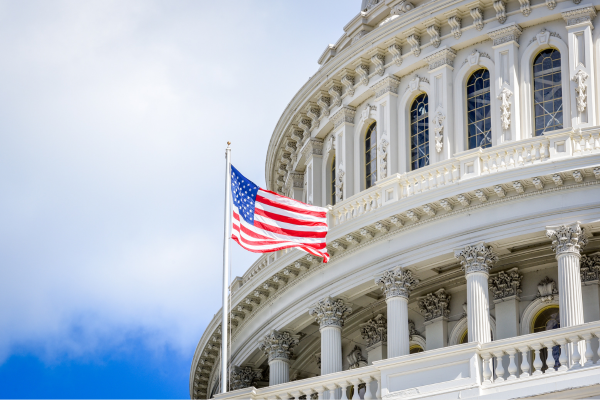
Data Suggests New Overdraft Legislation Unnecessary
Categories:
The past year has seen financial institutions shape up (by focusing on compliance and transparency) or ship out (by “eliminating” fees rather than making their disclosures and methods more transparent for consumers, like the big banks) when it comes to their overdraft programs.
Last month, the CFPB’s data spotlight indicated overdraft/NSF fee revenue of banks that reported was down 43% in the third quarter of 2022 compared to the third quarter of 2019 (pre-pandemic). That amounts to approximately $5.1 billion less in fees on an annualized basis.
Given this decline, are recent legislative efforts like the Junk Fee Prevention Act, the Overdraft Protection Act of 2021, and the Stop Overdraft Profiteering Act of 2021 actually needed? The data seems to suggest that current regulatory guidelines provide enough checks and balances for overdraft programs to operate as they should: responsibly, fairly, transparently and in consumers’ best interests.
BIG BANKS SAW BIG REDUCTIONS
Looking at the data, we see that more than half of the largest overdraft/NSF revenue generators in 2021 saw a reduction in that fee income at the same point in 2022. Bank of America’s overdraft/NSF revenue dropped by 56.6%, followed by PNC (-15.8%), U.S. Bank (-14.9%), Truist (-9.0%), and TD (-3.2%). Meanwhile, Regions saw no change, and Wells Fargo and JPMC each saw fee revenue increases of less than 3% (yet still significantly down from 2019 figures).
Judging by the recent major settlements, some of the big banks had to pay for faulty re-presentment practices (see: Bank of America – $75 million) or unfair AP/SN fees (see: Wells Fargo – $205 million), many of these larger financial institutions perhaps thought it easier to “eliminate” overdraft fees rather than fix their programs’ problematic transparency practices.
For many of the big banks, those practices sprouted from using an AI-driven, algorithm-based (“matrix”) decision-making overdraft models — which most community banks and credit unions have long ago turned away from because of the lack of transparency and the unclear disclosure language. Imprecise phrases such as if we approve the transaction and we’ll either pay it for you (overdrawing your account), decline it, or return it unpaid are advantageous to banks but definitely not to consumers. So rather than become more transparent, they deemed it better to “eliminate” the program or fees.
(Note: I use the word eliminate with quotation marks because, despite a drop in overdraft/NSF revenue from 2021 to 2022, most of these same institutions had increases in account maintenance/ATM fee revenue during that time.)
With the larger financial institutions taking such actions without legally being required to, it seems the “market” has corrected itself without a need for additional legislation.
A NATURAL COURSE-CORRECTION
Although one could argue that the increased media attention on overdraft fees, brought about by legislative efforts, may have been a catalyst for the fee decline, the bottom line is that no new law forced this result.
One likely primary driver was increased regulatory scrutiny on certain aspects of overdraft programs. And this scrutiny — on transparency surrounding re-presentments, AP/SN transactions and other program practices — has resulted in financial institutions taking one of three paths:
CURRENT REGULATIONS ARE WORKING AS INTENDED
There will always be some “bad apples” in any large group of people or institutions. But between regulatory examinations, the threat of a lawsuit, and loss of account holder trust, these programs will, like those before them, either shape up or ship out. We already have the regulations in place to make this happen, and the CFPB’s most recent bank call report data demonstrates this evolution in action.
100% COMPLIANCE IS A MUST
The only way to rise above today’s risks and tomorrow’s headlines is to ensure your overdraft program is compliant on all fronts.
There’s no time like the present to evaluate your overdraft program from all aspects to ensure it meets all current criteria for a valuable, responsible overdraft service your account holders can rely on.
For answers to all your questions about maintaining a compliant, consumer-first overdraft program, contact us.
ABOUT JMFA
JMFA provides community banks and credit unions with comprehensive overdraft consulting with consumer-focused recommendations, data-driven intelligence, and a 100% compliance guarantee to address your evolving needs. To learn more, contact your local representative or call us at 800-809-2307.





